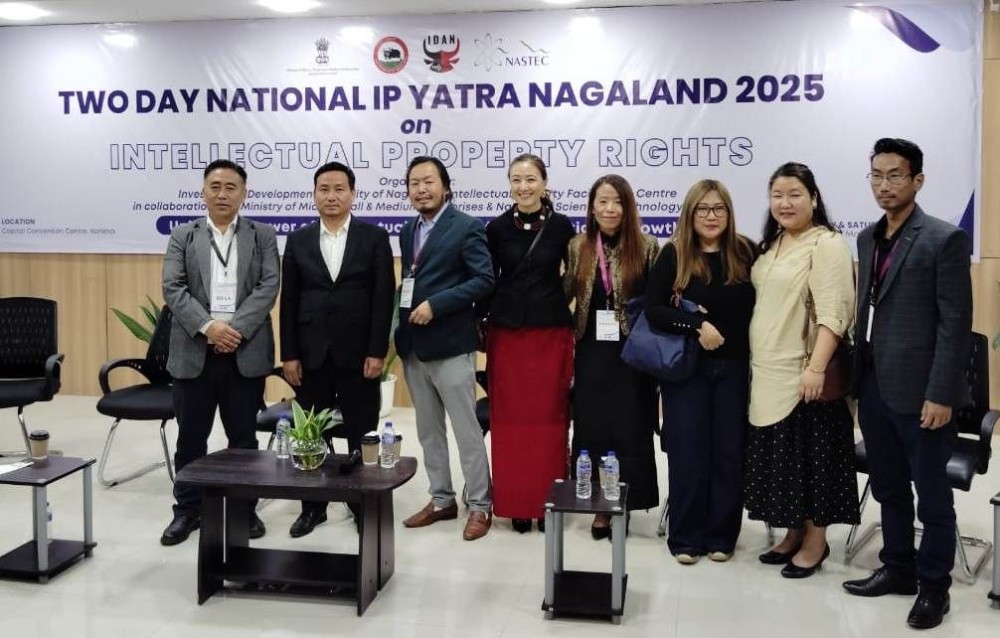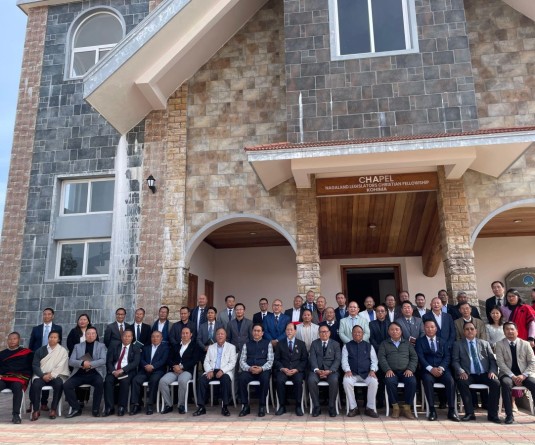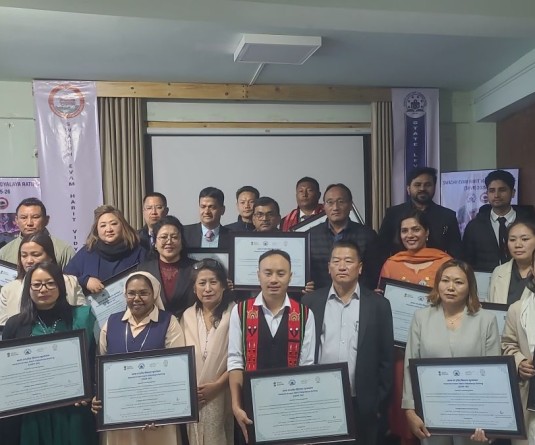Some of the panellists seen with participants during the panel discussion on "Impact of IPR in business growth and revenue generation."

Morung Express News
Kohima | March 29
Recognising the crucial role that Intellectual Property plays in uplifting innovation, creativity and economic growth, the two-day National IP Yatra Nagaland 2025 on Intellectual Property Rights (IPR) highlighted that in a rapidly evolving global economy, understanding and leveraging IP rights are essential for the MSME sector.
The two-day workshop was organised by the Investment & Development Authority of Nagaland (IDAN) in collaboration with Ministry of Micro Small & Medium Enterprises (MoMSME) and Patent Information Centre, Nagaland Science & Technology Council, Department of Science &Technology. With the aim to educate and empower local entrepreneurs, aspiring entrepreneurs, micro & small-scale business in Nagaland, the IP Yatra deliberated on the basics of IP and its significance, with the view to provide them with the tools and knowledge to protect their innovations and enhance market competitiveness.
As part of the workshop, a panel discussion on “Impact of IPR in business growth and revenue generation” was also held on March 28 with Lezo Putsure, Founder, EduCentre as the moderator. The speakers for the panel were Kekuneil Ltu, Scientist “B”, Patent Information Centre-NASTEC, Department of Science and Technology, Bambi Kevichusa, Founder & Creative Head, Windfall, Nengneithem Hengna, Proprietor, Runway India, Vishü Rita Krocha, Founder of PenThrill, Imtisunup Longchar, Director, Ilandlo Services Pvt. Ltd. and Dr. Niranjan Kumar Chauasia, Asst. Professor, Nagaland University, SAS, Medziphema Campus.
The panel threw light on the importance of IPR in the business sector and its relevance in the Naga community even as entrepreneurial activities continue to grow in the state.
Nengneithem Hengna gave a glimpse of her journey with jewellery making that began in the year 2011 and her experience of creating several designs one of which became a foundation for contemporary design and the challenges of getting the registration done. As individual small designers, Bambi Kevichusa expressed that “it is difficult for us to do the IPR for each and every design that we develop.” She however advocated the need for each tribe to start cataloguing and getting a GI tag for each of our motifs. Scientist Kekuneil Ltu dwelt on what the department is doing to protect the works of the entrepreneurs in this regard. Beginning in the year 2011, he said a period of 4-5 years was focussed on awareness programmes. He also highlighted about the Indian IP Policy 2016 which is in the implementation stage. Nagaland state, he however stated is in the still in the process of drafting the state policy. He further said that the STI Policy (Science, Technology and Innovation) is coming up wherein the state is also in the drafting stage. He added that all these policies will play a crucial role in creating a platform for Naga entrepreneurs to benefit and get huge advantage from.
With regard to publishing books, Vishü Rita Krocha said that Intellectual Property Rights generally refers to copyright and that its symbol © tells the public that a work is original and that its use, reproduction, transformation and publication are subject to author copyright regulations. The works of an author is protected by copyright for a minimum of 60 years even after the death of the author, she also highlighted.
Dr. Niranjan Kumar Chauasia cited instances of stolen ideas being used for commercial production while also dwelling on the application process of patents, designs, and trademarks.
Imtisunup Longchar recollected his entrepreneurial journey spanning across 11 years and spoke about over 500 entrepreneurs that Ilandlo currently collaborates with. He also underlined that when entrepreneurs sign an agreement with them, they don’t just talk about the commission but also how their brand logos and other specifics are ethically used on their advertising platforms.






